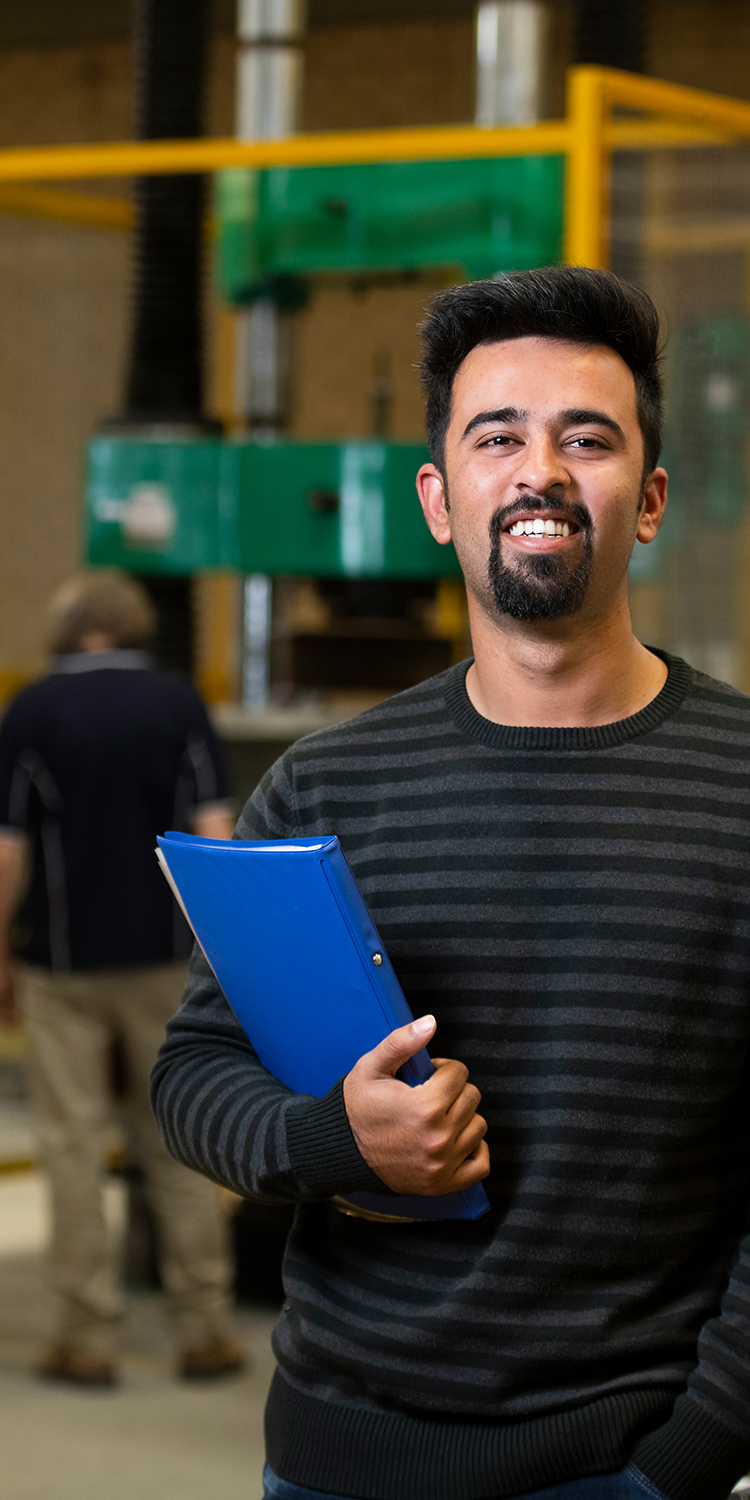Why Bachelor of Engineering (Civil) (Honours)?
Our world is changing fast. Cities are growing bigger and busier every day. But with growth comes challenges – how do we build the essential structures required to support everyone? That’s where civil engineers step in. They design, build and maintain the infrastructure that underpins modern life. They make sure bridges, roads, tunnels, railways, dams, airports, and water channels meet the needs of our society in a sustainable way.
The demand for civil engineers is soaring. With major public infrastructure spend estimated to hit $230 billion, civil engineers are among the most in demand engineering specialist by industry (Infrastructure Australia, 2023).
Through our Bachelor of Engineering (Civil) (Honours), you’ll learn to develop critical infrastructure that is safe, efficient and adaptable. Make your mark, building the world of tomorrow.
Overview
This degree provides you with a solid grounding in civil engineering knowledge and principles, alongside essential professional practice skills. Throughout, you’ll study a broad range of courses drawn from a range of civil engineering-related fields including structural, water, geotechnical and transportation engineering.
Spend time honing your creativity and engineering mindset through substantial design projects – learning how to design roads, bridges, tunnels, buildings, water systems and a range of other critical infrastructure.
In your final year, you’ll undertake a major honours research project with industry representatives or academic researchers acting as your clients. Work through the real-life stages of a project from developing a project brief through to feasibility, concept development and detailed design.
Complete up to 12 weeks of professional work placements in industry, ensuring you develop the practical skills to launch straight into your career.
With its broad focus, you’ll graduate with the knowledge and experience to work in a range of civil engineering fields including construction, geotechnics, water resources, environmental or sustainable infrastructure.










